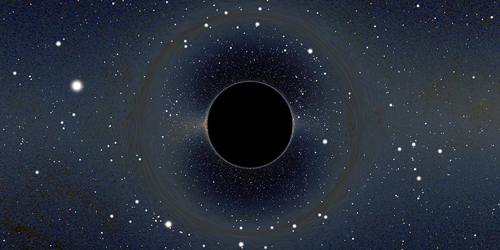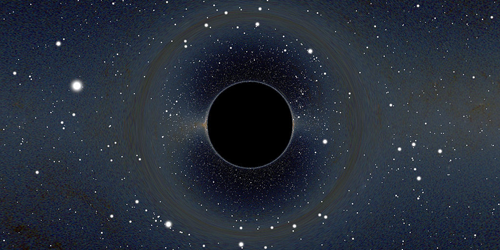Cosmic Instability Could Have Created Dark Matter
Our Universe may be sitting on the edge of destruction, as theory suggests that the Higgs field is in a metastable state. If this field tunneled to its “true” minimum energy state, the release of energy would be cataclysmic. The danger may be over-stated, as other physical mechanisms could have kept the Universe stable throughout its history. Nevertheless, the Higgs instability could have a major cosmological impact as the source of dark matter. According to this new scenario, dark matter consists of a large population of black holes that formed from fluctuations in the unstable Higgs field at the dawn of the Universe. These so-called primordial black holes have been proposed before, but this is the first hypothesis that doesn’t require physics beyond the standard model.
Physicists have long been aware that the Universe might rest in a “false vacuum.” This idea has recently taken on new urgency, as calculations based on the measured Higgs mass have shown that a lower energy state may exist for the Higgs field. Analyzing the implications of the Higgs instability, José Espinosa, from the Catalan Institution for Research and Advanced Studies (ICREA) in Spain, and David Racco and Antonio Riotto, both at the University of Geneva, have found that this menacing mechanism could—counterintuitively—be instrumental in creating the dark matter that makes galaxies and other life-accommodating structures possible. In their calculations, the team explored fluctuations in the Higgs field during an early expansion phase of the Universe, called inflation. Under certain assumptions, these fluctuations become seeds for microscopic black holes with masses around 1015 kg that could have a density consistent with cosmological predictions of dark matter.
This research is published in Physical Review Letters.
–Michael Schirber
Michael Schirber is a Corresponding Editor for Physics based in Lyon, France.





